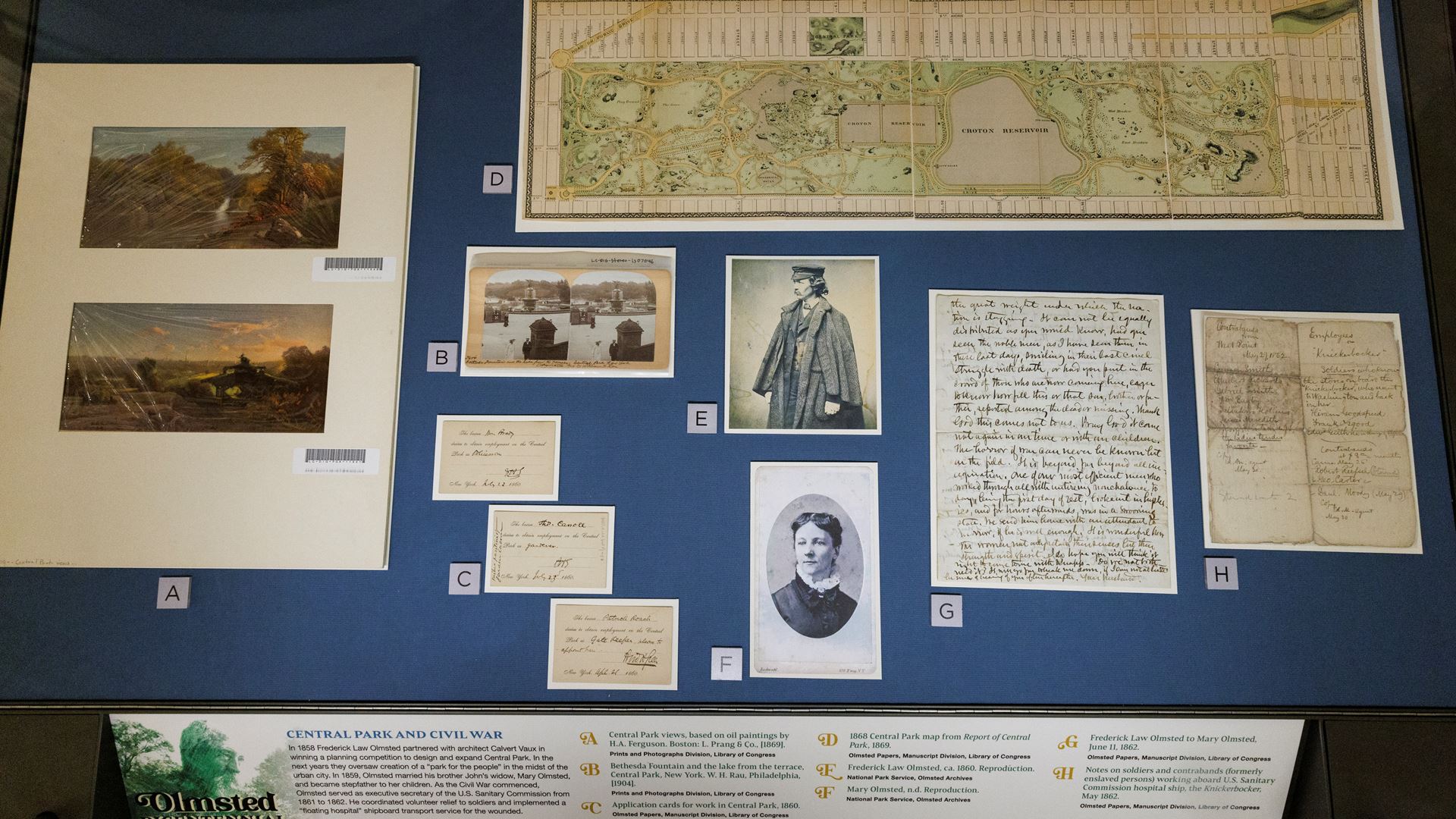
This is a photo of an exhibit about Frederick Law Olmsted at the Library of Congress, one of the nation's largest archives. Olmsted was a well known landscape architect in the 19th century. He was both a staunch advocate for the abolition of slavery and revolutionary thinker with regard to open space and public health. He was the leading proponent of urban parks and helped design Central Park in New York City.
Archives are a historians' playground. They are where the stories we tell live and breathe. Archives can be full of only paper documents, but they can also have oral and video recordings, artifacts, and images. At one point, historians almost always had to access archives physically (in a museum or a library or maybe occasionally in someone's dusty basement). But as the 21st century develops, archives are increasingly living in the cloud of cyberspace.
Archives were also once considered to be "complete," but scholars are rethinking the power of the archives to promote only partial renderings of the past that contain all the biases of society more generally. Critical archive studies is an increasingly important and fascinating field that examines how archives are tools for reinforcing or dismantling systems and concepts of power. A critical approach to the traditional ways of "doing" archival work can make the field of history more inclusive of more perspectives in stories already told, can empower researchers who want to tell new stories in new ways, can make history more accessible to more members of the community. New approaches to archives (their curating and their use) can also result in more democratic renderings of the past for posterity.
Digitizing archives is one way that members of the Department of History engage in public history that contributes to democratizing our understanding of the past.
The PHC and the Department of History are honored to be partners in digital archive projects. Click the buttons below to explore the projects:
Another way that the UArizona Department of History is engaged in digitization (or digital humanities) is by participating in historical thinking, source collection, and collaboration in the blogosphere. The perfect example of this is R.A. Kashanipour's decade-long collab on the The Recipes Project. The project, according to itself, is a blogspace that considers "recipes through the ages, ranging from medieval alchemical recipes to twentieth-century jellied salads. The blog is connected to a larger crowd-sourcing project (hosted at the University of Saskatchewan, but with collaborators from Germany, the U.K., and the U.S.) to transcribe recipe books, beginning with some of the seventeenth-century ones that have been digitized at the Wellcome Library, London." The website is not just a collection of blogs, though, it is also a portal to several recipe-related projects and ideas for teaching food and its preparation as vital historical subjects. Click below to access the Project:
As the PHC has grown, we have also maintained a blog about its activities and its own emerging history.
